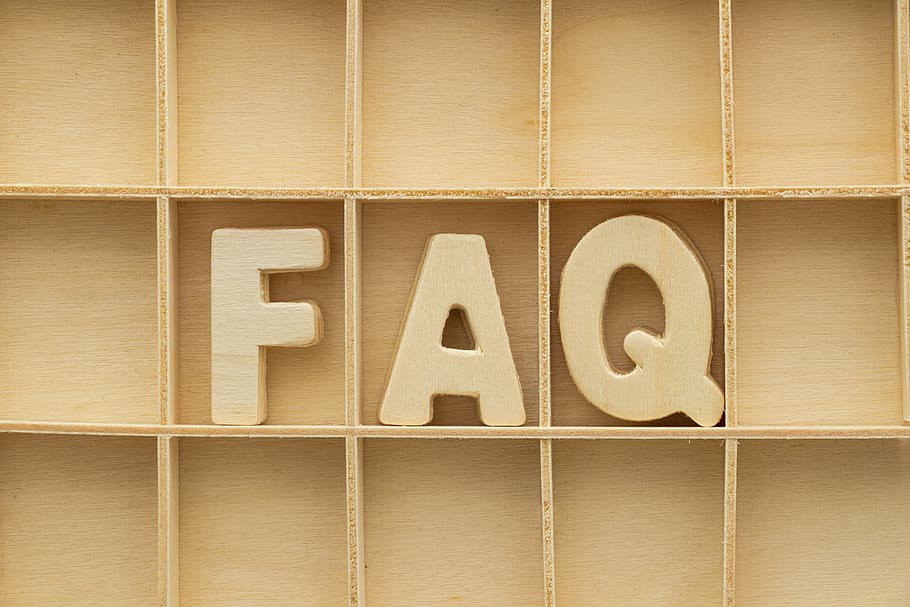Is The Bible Fiction Or Based On True Facts?
The more you learn about Scripture, the more you will realize that you can believe the Bible, because it has been inspired and preserved by a real God who is alive today! The Bible is firmly based on the facts of history, not on myth and fiction. The evidence presented in this booklet will make this clear.
What are true and false questions?
What is the difference between a fact and truth?
The main difference between fact and truth is that fact is something that exists in real form, while Truth is the true state of a particular thing or a matter like a person, place, animal or thing. Well, facts are things that can be seen visually and can be verified properly.
Does fiction mean true or false?
When asked to distinguish between the two, some people say that, while nonfiction is true, fiction is not. Nothing could be less true. In fact, fiction often relates the truth more tellingly—and more memorably—than nonfiction. Why, then, do some people cling to the fiction that fiction is false? The first reason we tend to think fiction has little to do with truth has to do with an assumption we all seem to take for granted.
What are some questions about England?
Round 1: England General Knowledge Trivia
How to read true or false questions?
As a result, search for terms like always and never while reading true or false questions, as very few things in life happen always or never, and there are usually exceptions to every rule. Other terms like seldom, typically, rarely, or oftentimes are more flexible and hence may be more true than untrue. 3. Carefully read the questions.
What are some of the most mind-blowing facts about science?
This widely held science myth was disproved once scientists started imaging brain activity. 5. Dry ice melts into liquid carbon dioxide as it warms in a room. At ordinary temperature and pressure, dry ice sublimates directly into carbon dioxide gas, without a liquid phase. Liquid carbon dioxide can exist, but only if the pressure is controlled.
How many questions are in the TV pub quiz?
From pop culture and science to geography and politics, there’s a bit of something for everyone in this quiz and with 33 questions, there’s enough content to keep you entertained all evening. Once you’re finished, make sure to check out our TV pub quiz, film pub quiz, music quiz or sport pub quiz?
Are UFOs real or fake?
Most mainstream scientists consider UFOs (in their popular sense as extraterrestrial visitors) as so extraordinarily unlikely (though not impossible) as to deserve no investigation. [4] Peru ’s air force is reopening an office responsible for investigating UFOs due to increased reports of anomalous aerial phenomena.
What was the first book on UFOs called?
The first published book to use the term “UFO” was Donald E. Keyhoe’s 1953 book, Flying Saucers from Outer Space. [7] Between 1947 and 1969, 12,618 UFO sightings were reported to Project Blue Book, a UFO research agency that was headquartered at Wright-Patterson Air Force Base.
Did the CIA report UFO sightings?
UFOs: Fact or Fiction? This collection catalogues CIA information on this subject from the 1940s through the early 1990s. Most of the documents concern CIA cables reporting unsubstantiated UFO sightings in the foreign press and intra-Agency memos about how the Agency handled public inquiries about UFO sightings.
What is the origin of the term UFO?
The modern UFO era began in 1947 when pilot Kenneth Arnold reported seeing nine disc-shaped objects flying over Mt. Rainer, Washington. A reporter labeled them “flying saucers,” and the term entered mainstream consciousness. [11]
What is fake news and why does it matter?
More recently, fake news has been used for monetary gain or political sabotage. Provide examples of real news, fake news, and satire for students to examine and differentiate between. Gather their responses and use them as a tool for future reference.
What are the Best Fact-checking websites?
FactCheck.org is one of the most popular fact-checking websites on the internet and it has garnered several Webby awards for its investigative body of work over the years. Similar to PolitiFact, Factcheck.org primarily deals with political claims and rhetorics.
What are the Best Fact checking sites?
5 Best Fact Checking Websites on The Internet The Best Fact Checking Sites That Debunk Hoaxes and Fake News 1. Snopes.com 2. FactCheck.org 3. Hoax-Slayer.net 4. PolitiFact.com 5. TruthOrFiction.com Other Fact Checking Sites Websites That Also Debunk Hoaxes, Investigate Myths and Expose Scams
Which is the best website to check for fake news?
1 Snopes.com. 2 FactCheck.org. 3 Hoax-Slayer.net. 4 PolitiFact.com. 5 TruthOrFiction.com.
Do you get spun by Internet rumors?
Don’t get spun by internet rumors. Just because you read it on Facebook or somebody’s blog or in an email from a friend or relative doesn’t mean it’s true. It’s probably not, as we advised in our special report “ That Chain E-mail Your Friend Sent to You Is (Likely) Bogus. Seriously ,” on March 18, 2008.
What is the most wide spread type of fake news?
People in China and in North Korea didn’t realise that is was a joke and shared it, believing it was true. Vick Hope: One of the most wide spread types of fake news is clickbait. James Ball: We’ve all seen that sort of headline that looks great, “Hey you’re the millionth person to this site, claim your free iPad”.
How bad are students at deciding fact from fiction?
According to one study by Stanford University, elementary, middle, and high school students are shockingly bad at determining fact from fiction (Turner, 2016). Even more shocking, some of the most easily confused “news” articles presented by the study conductors were actual advertisements found on websites.
What is fake news and where does it come from?
What is fake news? Fake news means news that is completely untrue – it has been made up. Where did fake news come from? Fake news isn’t actually new – people have been making up news for centuries. Social media means it is easier for these stories to spread and this means it is a bigger problem for us.



